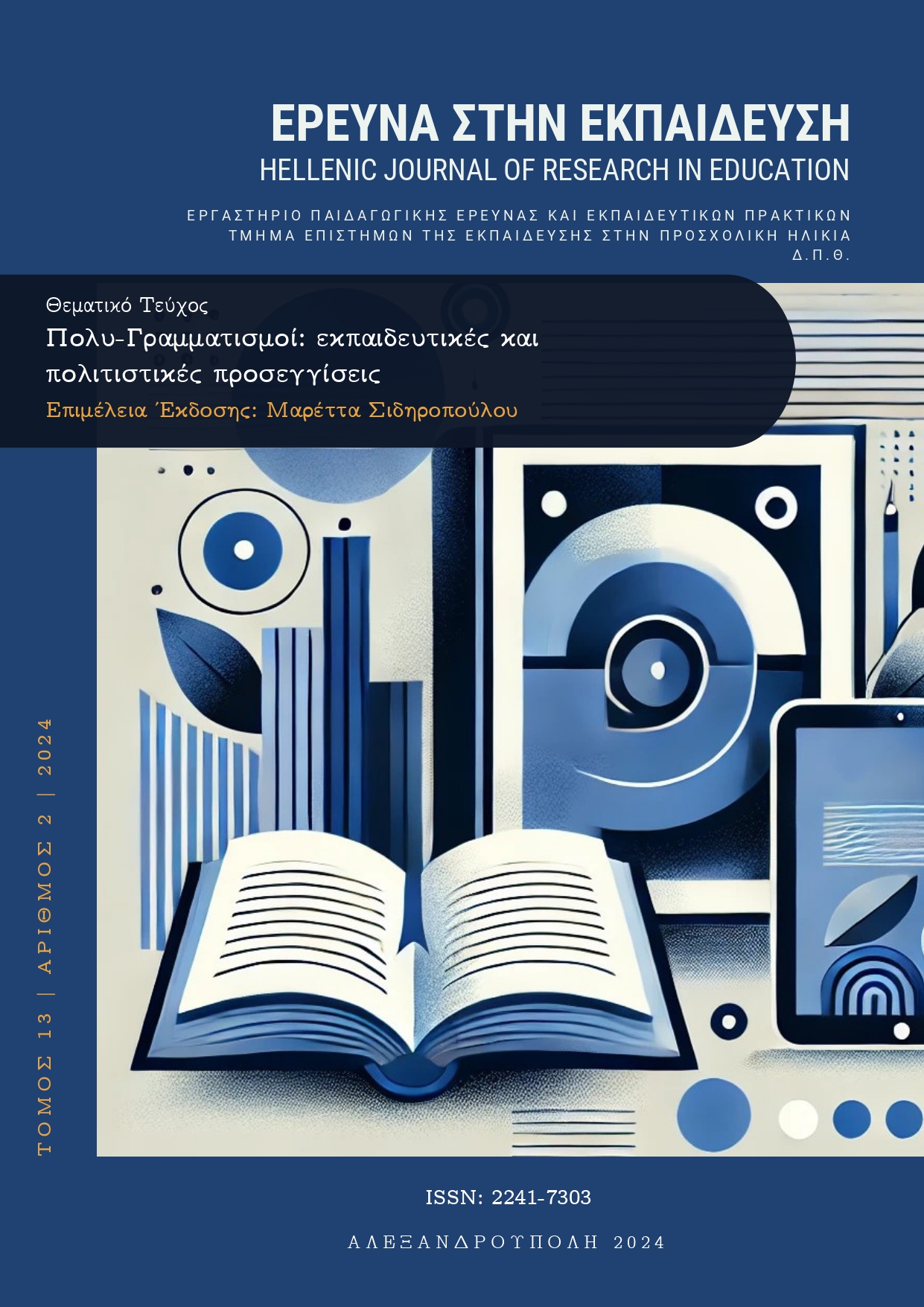Combining Multiliteracies with the STEAM methodology in the school of today

Abstract
The concept of multiliteracies refers to an educational approach that recognizes the diverse forms of literacy required in today's complex and rapidly changing world. The notion of multiliteracies goes beyond traditional concepts of reading and writing, incorporating a broader range of skills such as digital literacy, visual literacy, cultural competence, and critical thinking. In contemporary schools, educators aim to equip students with the ability to navigate and communicate effectively through various modes of communication and media. This includes understanding and producing written texts, as well as engaging with visual, auditory, and digital information, preparing students for the demands of a globalized and technologically driven society through the introduction and evaluation by educators across the country of two STEAM projects approved in the framework of the Institute of Educational Policy's Skills Labs. Through this paper, the contribution of multiliteracies will be integrated with the STEAM methodology (Science, Technology, Engineering, Arts, Mathematics) with the goal of combining these two approaches to enhance education with interesting and multicultural content.
Article Details
- How to Cite
-
Foti, P. (2024). Combining Multiliteracies with the STEAM methodology in the school of today. Hellenic Journal of Research in Education, 13(2), 122–133. https://doi.org/10.12681/hjre.37853
- Section
- Articles

This work is licensed under a Creative Commons Attribution-NonCommercial-ShareAlike 4.0 International License.
Authors who publish with this journal agree to the following terms:
- Authors retain copyright and grant the journal right of first publication with the work simultaneously licensed under a CC-BY-NC-SA that allows others to share the work with an acknowledgement of the work's authorship and initial publication in this journal.
- Authors are able to enter into separate, additional contractual arrangements for the non-exclusive distribution of the journal's published version of the work (e.g. post it to an institutional repository or publish it in a book), with an acknowledgement of its initial publication in this journal.
- Authors are permitted and encouraged to post their work online (preferably in institutional repositories or on their website) prior to and during the submission process, as it can lead to productive exchanges, as well as earlier and greater citation of published work (See The Effect of Open Access).


